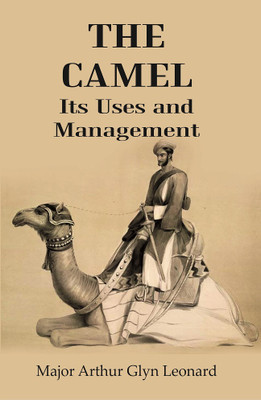The Camel Its Uses And Management(Paperback, Major Arthur Glyn Leonard)
Quick Overview
Product Price Comparison
About The book : The Camel : Its Uses and Management Camel was, as we know', a native of Arabia or of the regions adjacent, and could have easily crossed over into Greece in those prehistoric days when Europe and Africa were joined together, and the Mediterranean was a huge lake. The Camel is one of the oldest mammals now living, is essentially a domesticated animal, and one of the earliest ever domesticated. It has never ŌĆö at least to my knowledge, but I am open to correction been found in a wild state, nor have any traces ever been discovered of its having been so at any period of the worldŌĆÖs history. About The Author : Arthur Glyn Leonard soldier, ethnographer, and Rhodesian pioneer, was born in August 1856 in Ireland. In 1873 he joined the 2nd Battalion, East Lancashire Regiment, serving as a transport officer in India and in conflicts in Afghanistan, Egypt, and the Sudan, where he was seriously injured during the Mahdhist revolt of 1885. He was promoted captain in 1884, and major with a brevet the following year. In 1889 he took command of ŌĆśEŌĆÖ Troop of the British South Africa Company Police, which a year later escorted the pioneer column in the occupation of Mashonaland on behalf of Cecil Rhodes. The proudly titled How we made Rhodesia (1896), his account of the occupation, compiled in part from diary entries and letters written from Fort Macloutsie and Fort Tuli in 1890ŌĆō91, provides vivid and insightful portraits of the imperial dramatis personae of the time, including Rhodes, Dr Leander Starr Jameson, Lord Randolph Churchill, and Sir Henry Loch, British high commissioner, as well as of Leonard's Irish compatriot, Col. Edward Pennefather (1850ŌĆō1928), who commanded the pioneer column. He was highly, almost libellously, critical of British South Africa Company employees, including Pennefather, Dr Rutherfoord Harris, the Company secretary in Kimberley, and the pioneer column's contractor, Frank Johnson, whom he accused of failing to provide sufficient horses; so much so that an injunction against further publication of the book was successfully sought by fellow pioneer Sir John Willoughby.


